Sometimes, when writing, the topic includes so many nuances and interesting details, that you just don’t notice how you are getting carried away. And so, you end up exceeding the necessary word count. What should you do? Well, the answer is clear – just shorten your text! However, we know that it is hard to cut out the parts of your own creation. No worries though, as we are going to show you the way to make your essays shorter (and all without losing the important details).

✅ AI Essay Writer ✅ AI Detector ✅ Plagchecker ✅ Paraphraser
✅ Summarizer ✅ Citation Generator
Basic Strategies on How to Reduce Word Count
Those of you who are interested in gardening will understand this allusion: shortening an essay can be a bit like trimming a bonsai tree. And for those of you who are not fans of such activities, this simply means that for the essay, you want to cut back without losing the essence. Now, to get you started, we have prepared some fundamental strategies.
Use Active Voice Instead of Passive
Switching to active voice makes your writing more direct and engaging but also helps in reducing unnecessary words. Passive voice can be wordy and less impactful. For instance:
Spot the Unnecessary Fluff
Identify and eliminate any redundant or excessive information in your essay. Long-winded introductions, repetitive details, and off-topic tangents can all be trimmed down. If you’ve written multiple sentences to explain a single idea, see if you can combine them into one concise sentence.
Eliminate Redundant Words
Many words we use in writing don’t add much value and can be cut out. Words like “very”, “quite”, “basically”, or “really” often fall into this category. For example:
Use Shorter Words
Sometimes, replacing long words with shorter synonyms can help you stay within page limits. For example, instead of writing “elevate,” you can write “raise.” This not only saves space but also makes your writing more readable.
How to Shorten Sentences
Shortening sentences is a great way to make your writing more concise and impactful. One effective method is to avoid using vague subjects like “What” or “There.” These often add unnecessary words. Instead, make the subject more specific, which not only shortens the sentence but also clarifies the meaning.
- Original: There are many factors that influence the results.
- Revised: Many factors influence the results.
Similarly, the word “that” is often overused and can be eliminated without changing the meaning of the sentence. For instance,
- Instead of writing: “We found that the cells that were treated showed improvement,”
- You can streamline it to: “We found the treated cells showed improvement.”
Another strategy is to remove unnecessary adverbs and adjectives. Strong verbs and nouns usually don’t need modifiers, so cutting these out can tighten your writing. For example,
- “The extremely long and detailed report was very informative”
- Can be shortened to: “The detailed report was informative.”
In addition, instead of using conjunctions to connect multiple ideas in one sentence, try breaking them into separate sentences. This a)reduces word count and b)makes the text clearer.
- Original: “The project was challenging, but we completed it on time”
- Can be simplified to: “The project was challenging. We completed it on time.”
Transitions like “indeed,” “then,” or “furthermore” can also often be removed without affecting the flow of your writing. For example, “Furthermore, we found the solution to be effective” can be streamlined to “We found the solution effective.”
Finally, phrases like “there are,” “it is,” and “the fact that” can often be rephrased to make your writing more direct and concise.
- Instead of writing: “It is important to note that the results are conclusive,”
- You can say: “The results are conclusive.”
How to Make an Essay Shorter: Tips & Tricks
All of the strategies we’ve discussed above will certainly help you make your essay the required word count. However, these are not the only approaches you can use. Probably the most unconventional option here is to use a paraphrase or a special sentence shortener tool to help you. These technologies use AI to quickly scan through the text and identify all the fluff and filler words that can simply be deleted.
Try Using AHelp AI Content Shortener For Free
And, if you still want to use manual editing, one of the quickest ways is to get rid of unnecessary or ancillary information. For instance, if your essay is about George Washington’s policy positions, avoid including details about his personal life unless they directly impact his political career. Besides, clear and direct arguments are not only more persuasive but also much clearer and can save you precious words. Building up your argument with hefty explanations can dilute its impact.
Additionally, look into whether your text has any unnecessary prepositional phrases. This can significantly tighten your writing. Instead of saying,
- “For many people, the reality of an entry into a new area of employment is cause for a host of anxieties,”
- You can simplify it to, “Changing careers makes many people anxious.”
Finally, targeting paragraphs with widows and orphans (weird namings but bear with us) can help you save space. A widow is a lone word or short group of words at the bottom of a paragraph, while an orphan appears at the top of a page. By restructuring sentences or combining shorter sentences, you can exclude these dangling words and gain an extra line of space.
Conclusion
At the end of the day, getting the hang of shortening an essay will not just make your text fit in the word count. It will also improve your writing, making it clear and punchy. Think of it as a way to make your ideas stand out and grab your reader’s attention. So, next time you’re editing, remember these tips and make your writing more impactful and easier to read.
FAQ
Follow us on Reddit for more insights and updates.


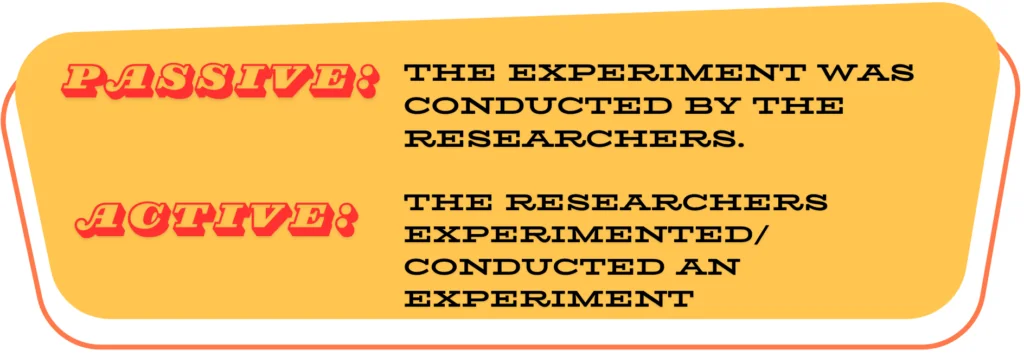
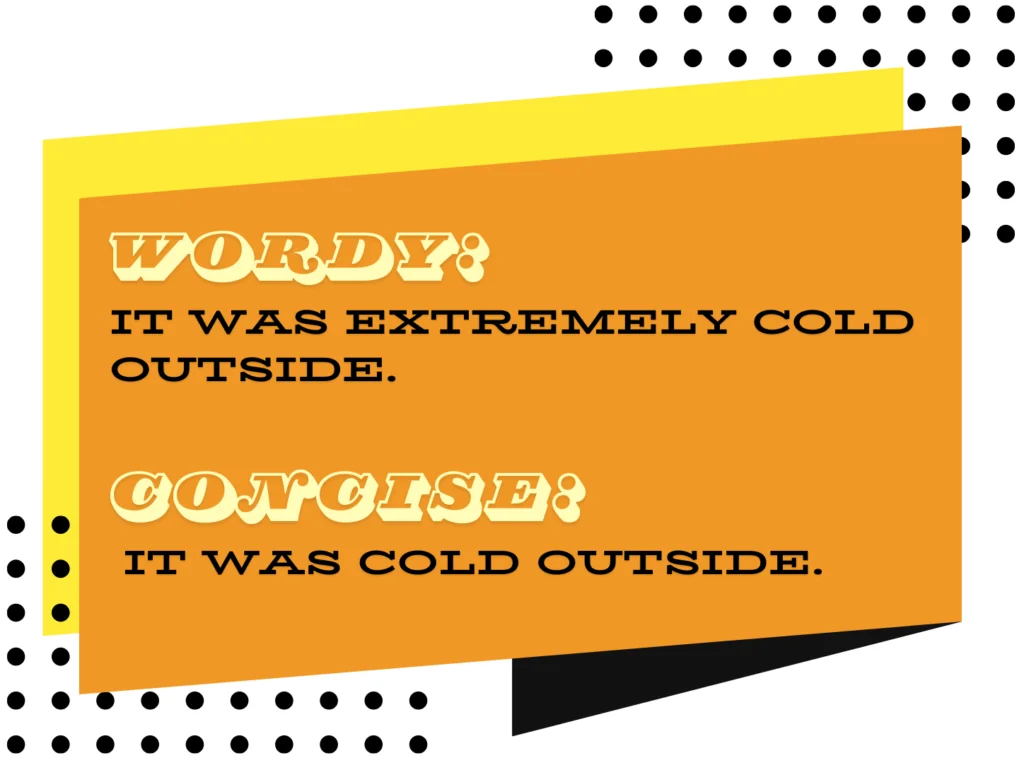
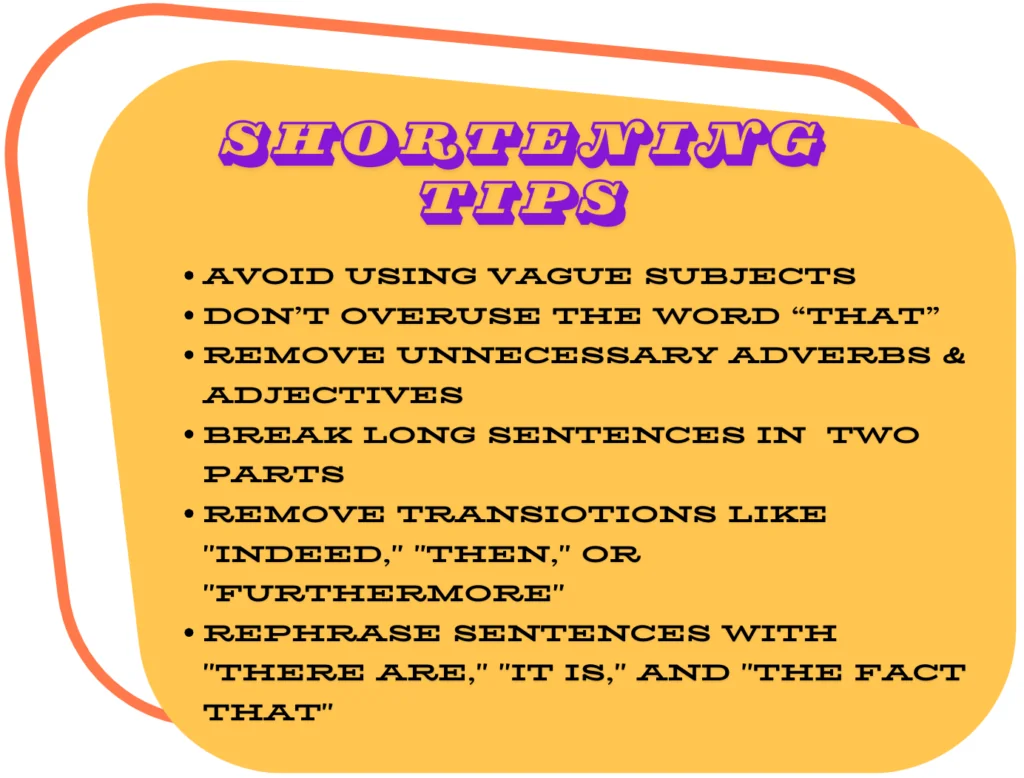
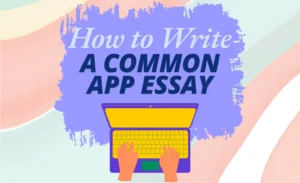
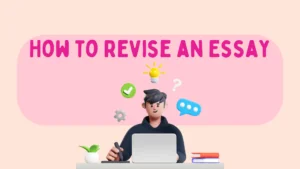
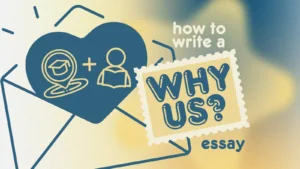
Comments (0)
Welcome to A*Help comments!
We’re all about debate and discussion at A*Help.
We value the diverse opinions of users, so you may find points of view that you don’t agree with. And that’s cool. However, there are certain things we’re not OK with: attempts to manipulate our data in any way, for example, or the posting of discriminative, offensive, hateful, or disparaging material.